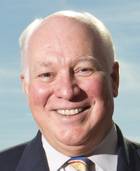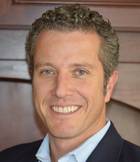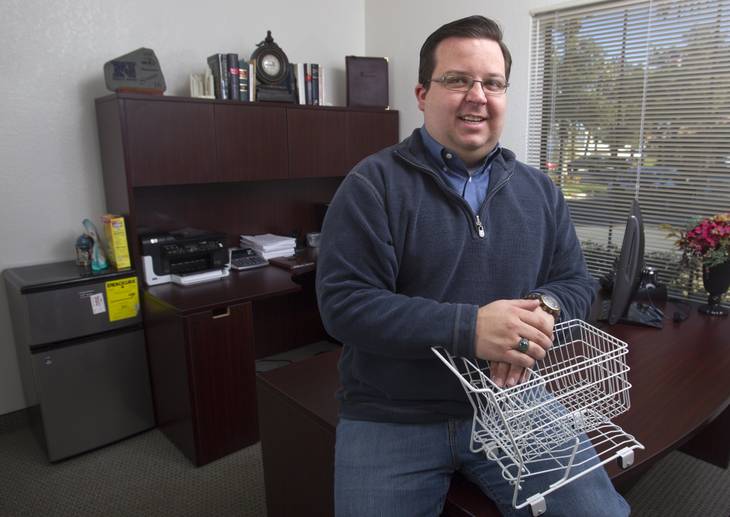If the press is sometimes referred to as the fourth branch of government, the fifth branch surely would be lobbyists – the paid professionals who advocate on behalf of industries, business owners, labor unions and causes large and small.
In Carson City, lobbyists play a key role, serving as power brokers in the Nevada Legislature.
They act as confidants and de-facto staff to part-time lawmakers who meet only once every other year. Many are attorneys and have been known to help write bills and direct policy. They broker deals between elected leaders and are vital go-betweens between policy makers and industry and labor leaders, both during political campaigns, when lawmakers need money, and during the legislative session, when lawmakers need votes.
If something big is looming – a tax proposal, policy change or just good old-fashioned political gossip – lobbyists typically are the first to know. After all, that’s why they get paid the big bucks – sometimes as much as $10,000 to $25,000 a month.
The Legislature officially starts Feb. 4. And for the first time since 2009, taxes might not be the burning issue they have been.
Republican Gov. Brian Sandoval has agreed to extend most of the $620 million in taxes passed in 2011. Democrats who control both the Assembly and Senate, so far, have not said that they want to raise taxes. Instead, they’ve talked about reforming the state’s tax structure and closing loopholes.
That could mean some form of revenue-neutral tax proposal – for example, lowering one rate, such as the sales tax on tangible goods, but adding another, such as a sales tax on services (including lobbying).
Labor unions, particularly the teachers union, have called for more taxes, arguing that five years of state budget cuts have hurt schools and services for the poor. But with 2/3 approval needed to pass any tax, an immediate increase isn’t likely to come this session.
If there’s no money to fight about, lawmakers could dip their toes into other areas. Proposals are floating around proposing new deposit fees for recycling and requirements for restaurants to publish calorie counts.
Watching it all will be Nevada’s lobbying corps.
This year could be a little different for them. The session will be the first under the full effects of term limits, which voters passed in 1994 and 1996. The state’s longest serving lawmakers have been forced out; more than 20 percent of the 63 lawmakers are true freshmen, having never served in Carson City.
That lends an air of uncertainty to the entire process.
Take, for example, Assembly Democrats’ vote to pick a leader in November. The heir-to-be had been defeated. Lobbyists believed the new leader would be Assemblyman William Horne. Instead, it was Assemblywoman Marilyn Kirkpatrick.
Even when they’re right, lobbyists are a derided group. Jokes about them abound. (Consider: How does a lobbyist sleep? First he lies on one side, then he lies on the other.)
But for all the grief the profession takes, lobbyists often provide the best insight into happenings inside the halls of government.
VEGAS INC asked five lobbyists who will navigate this session for business clients to predict the issues companies will face this year. Their answers were edited for length and clarity, and none spoke on behalf of their clients.
-

Sam McMullen, partner at Snell and Wilmer
McMullen, a native of Elko, has been lobbying professionally at the Nevada Legislature since 1983.
He keeps a low profile, rarely talking to the press or testifying in committee. But he has a long roster of clients. He is best known for representing the Las Vegas Metro Chamber of Commerce, which has successfully – and sometimes contentiously – carved out a profile and agenda separate from the state’s largest industry, gaming.
“What Nevada needs more than anything is a tax system that functions. We can’t dismantle the state whenever the economy goes bad.
“We have to watch the Affordable Care Act and how the state implements the health insurance exchange. The tuning of those, how they hit businesses, is very important.
“Businesses are trying to survive and keep people employed. It’s not just ‘hold even’ or ‘do no harm.’ We have to do better to get back to the level of vitality we used to know.
“Our intention is to be more successful every day. The state needs everybody to have more vitality.
“To get more businesses here, we have to look at education. The chamber particularly, most all businesses, are really focused on how we help education. We all believe it’s fundamental.
“But we have to ask, is it truly underfunded? Or is it underperforming?
“Whatever it needs, we need to fix it. Look at the reforms put into place in 2011. Performance pay for teachers would cost some money. We’re always willing to support funding that.
“The trick is, it’s not just a black-and-white test of dollars or no dollars. It’s how dollars are used and how the system works best. I’m convinced a lot of things aren’t dollar based.”
-

Lesley Pittman, president of Sierra Strategies
Pittman’s clients include Miller/Coors, Station Casinos, medical diagnostic centers and anesthesiologists.
“This could be a very busy session for businesses on the policy front. There’s going to be a lot of legislators who aren’t sitting on the money committees, devoting a lot of time and attention to issues that are policy related. It could create far more activity on the policy front.
“And that’s where lobbyists are of significant value, to make sure legislators understand the magnitude of particular changes and how it could impact an industry. A change in the law might seem insignificant, but it could have enormous consequences. That’s our job, especially when you have 20 new legislators.
“It’s not only the learning process. But because of the process, they don’t have the historical context on policy changes before them. They’re not aware that we hashed out issues, over and over again. It’s explaining the unintended consequences.”
-

Bryan Wachter, director of government for the Retail Association of Nevada
Wachter, a graduate of the Clark County School District, started as an intern for the Retail Association during the 2007 Legislature, then was hired full-time for the 2009 and 2011 legislative sessions.
The Retail Association of Nevada has 1,600 state members that range from mom-and-pop businesses to Wal-Mart. It is a conservative voice in Nevada’s tax debate.
“There are a lot of bills that have already been submitted for drafting that we’re watching, from the role of a pharmacist to workers’ comp bills. There are recycling bills and a bill draft request to put calorie counts on restaurant menus.
“Things in the economy are improving. Some stores are closing, but they’re few and far between. It’s not as regular as it was in the past. We’re not back to where we were in 2006 or 2007.
“On taxes, the first question should be: is our tax system broken? Or is our revenue not performing the way we want it to because of the economy?
“We haven’t really had a non-recessionary period where our tax system hasn’t performed the way it should. If our economic trouble goes away, would our tax structure be adequate? The evidence we have, from before the recession, is that it would be.
“Better than creating a new tax on business is broadening the sales tax rate. Make the rate as low as possible.
“If we did broaden it to include things like attorneys fees, we would be adding a category to an existing tax. It would not require creating an IRS in Nevada, with tens of millions of dollars in new fees.
“There will be over 1,000 bill draft requests this session. It’s a lot to follow. The tax conversation is important, but it’s not the only conversation.”
-

John Griffin, founding partner of the Capitol Company
Griffin began lobbying in 1999. In 2010, he and lobbyist Russell Rowe formed their own company.
Their clients include Zappos and a number of tech companies, including Amazon, both of which are key to Nevada’s evolving economy.
“Tech companies’ involvement in politics and government affairs is indicative of the start-up nature of the businesses themselves. Most have come about as counterculture organizations, outside conventional mechanisms.
“The most conventional format there is is politics and government affairs.
“Some of the conventional companies, like alcohol, manufacturing and automobiles, have in-house government affairs operations that sometimes include hundreds of people. Some major tech companies have one to five people. It makes it really exciting and interesting to deal with.
“Right now, the tech companies are not coming to the government asking for something. They’re playing defense – answering questions on security, privacy. They’re educating policy makers on privacy laws, encryption laws.
“There are no real negatives in Nevada in the mind of tech companies. When they look at Nevada, what they’ve said is it has a great climate, its economic development packages are competitive, the quality of life is competitive, and the tax structure is advantageous to them.
“The big — I wouldn’t say stumbling block — but the area that they can improve on in general for tech companies is K-12 education. That’s one of the most important things. If they’re locating facilities with a large number of employees, they want to keep their employees happy. That means good K-12 schools for employees’ kids.
“They know where Nevada ranks in the K-12 education. I was surprised how much some companies knew about our K-12 system.
“I think this session is going to have a fast start. I think Assembly Speaker-elect Marilyn Kirkpatrick has an aggressive agenda. Where it goes, how it goes, is still up in the air.
“One advantage to term limits is we have a whole new crop of legislators to find solutions. We may rehash solutions from a decade ago. But just because ideas or policy issues didn’t pass a decade ago, with term limits, the ideas could have a whole new life.
“The state has to find another economic driver. For years, it was gaming. For a short time, it was development and housing.
“Talking about tech companies, there’s potential in data centers and fulfillment centers. We have the location, access to rail and air transport. We have a lower cost compared to California. It’s a good way to get tech companies to the state.”
-

Morgan Baumgartner, executive vice president and general counsel at R&R Partners
Baumgartner graduated law school in 1995 and immediately entered her first Nevada Legislative session as a lobbyist.
Now, she is the day-to-day voice and face of R&R Partners, one of the state’s most powerful lobbying firms. Its partners advise Sandoval and Senate Majority Leader Harry Reid. The firm’s clients also include the Nevada Resort Association, the trade group for casinos.
“Taxes and revenue issues are always at the forefront. In 2013, we’ll be re-examining, yet again, how we raise revenue and spend revenue.
“But for the first time in quite some time, we’re not in a crisis mode. We have the finger in the dike. We have more breathing room. We won’t be so focused on an absolute emergency. We can focus on other things.
“I think there’s some general consensus out there that we don’t want to go through another period that we have been in for the past four or six years. There will be some kind of look at a different tax structure, revamping or reform. We have to make sure it’s done in an equitable manner where we don’t penalize certain businesses.
“A huge thing to look at is regulatory reform – looking inside, internally, to see how we can streamline processes. We want to make them not only simpler, but make sense.
“Economic development will be important as we try to expand our business base, so we’re not a singular or bilateral industry economy. Economic development will be at the forefront.
“Our clients, like every other business in the state, are concerned with where we get our labor force and also getting people outside of Nevada to move here. We need a sound education system, where people have confidence in their schools and confidence in the education system. Education is also something at the forefront of my mind as a business. It’s fundamental to the healthy well-being of the state.”





